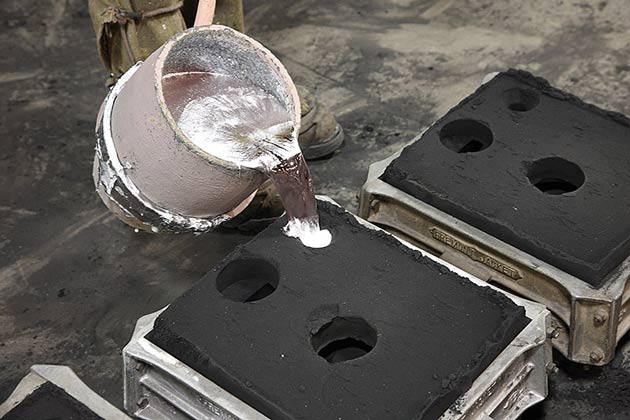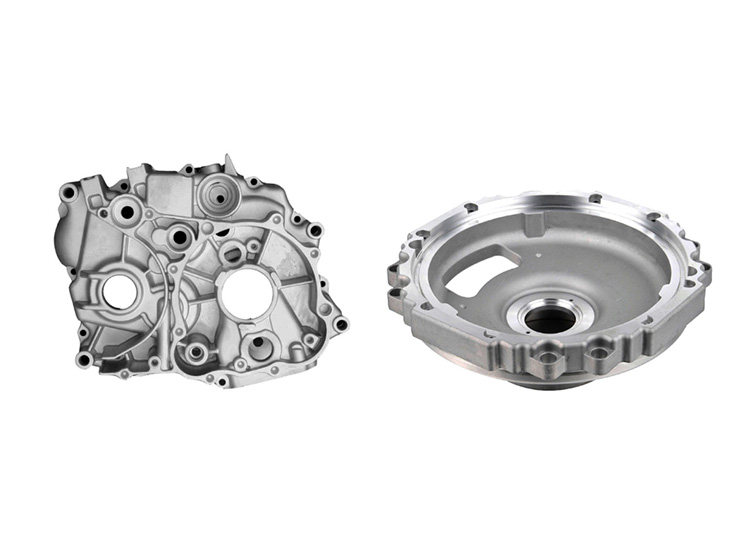Little Known Facts About Stahl Specialty Company.
Little Known Facts About Stahl Specialty Company.
Blog Article
Stahl Specialty Company Fundamentals Explained
Table of ContentsNot known Facts About Stahl Specialty CompanyEverything about Stahl Specialty CompanyStahl Specialty Company Fundamentals ExplainedThe 9-Second Trick For Stahl Specialty CompanyStahl Specialty Company Can Be Fun For Everyone
The subtle distinction hinges on the chemical web content. Chemical Contrast of Cast Light weight aluminum Alloys Silicon promotes castability by reducing the alloy's melting temperature level and improving fluidness throughout spreading. It plays an essential function in allowing detailed mold and mildews to be loaded properly. Additionally, silicon adds to the alloy's strength and put on resistance, making it valuable in applications where resilience is important, such as automotive components and engine components.It also enhances the machinability of the alloy, making it simpler to refine into completed products. In this way, iron adds to the total workability of aluminum alloys. Copper enhances electrical conductivity, making it advantageous in electrical applications. It likewise enhances rust resistance and includes in the alloy's overall stamina.
Manganese adds to the toughness of aluminum alloys and boosts workability. It is commonly used in functioned aluminum products like sheets, extrusions, and profiles. The presence of manganese help in the alloy's formability and resistance to splitting during fabrication procedures. Magnesium is a light-weight element that provides toughness and influence resistance to light weight aluminum alloys.
It permits the production of light-weight parts with superb mechanical residential or commercial properties. Zinc enhances the castability of light weight aluminum alloys and aids control the solidification process during casting. It enhances the alloy's toughness and firmness. It is frequently found in applications where complex shapes and great information are needed, such as attractive spreadings and certain auto components.
Some Known Details About Stahl Specialty Company
Because aluminum-silicon alloys have excellent casting residential properties, high gas homes, easy procedures, and excellent corrosion resistance, aluminum-silicon alloys are most typically utilized in the die-casting industry at home and abroad. At the same time, aluminum-silicon alloys are also reasonably very early and extensively recognized alloys developed and made use of in die-casting. After constant study and enhancement, the majority of the existing worldwide mainstream aluminum-silicon alloys have actually been completed and are nothing greater than A356, A360, A380, ADC12, B390, and A413.
The key thermal conductivity, tensile toughness, return stamina, and elongation vary. Among the above alloys, A356 has the highest possible thermal conductivity, and A380 and ADC12 have the lowest.

The Ultimate Guide To Stahl Specialty Company
In precision casting, 6063 is appropriate for applications where elaborate geometries and high-grade surface coatings are extremely important. Instances include telecommunication units, where the alloy's remarkable formability permits for smooth and visually pleasing styles while keeping structural integrity. Similarly, in the Lights Solutions sector, precision-cast 6063 elements develop sophisticated and efficient lights components that need intricate forms and excellent thermal efficiency.
(https://www.figma.com/design/5dtta9biYAvurKhKjAAp7p/Untitled?node-id=0-1&t=AoovjzyjwBUdKG93-1)
It causes a better surface coating and better rust resistance in A360. Moreover, the A360 shows remarkable prolongation, making it perfect for complex and thin-walled parts. In precision casting applications, A360 is fit for industries such as Customer Electronics, Telecommunication, and Power Devices. Casting Foundry. Its improved fluidness permits intricate, high-precision components like smart device coverings and communication device housings.

In accuracy spreading, light weight aluminum 413 radiates in the Customer Electronics and Power Devices industries. This alloy's superior deterioration resistance makes it an outstanding choice for exterior applications, guaranteeing long-lasting, long lasting items in the stated sectors.
The Buzz on Stahl Specialty Company
The aluminum alloy you pick will significantly influence both the casting process and the properties of site the final item. Because of this, you have to make your decision meticulously and take an educated technique.
Establishing one of the most ideal light weight aluminum alloy for your application will suggest considering a large array of features. These relative alloy qualities comply with the North American Pass Away Spreading Association's guidelines, and we have actually split them right into two categories. Foundry near me. The initial category addresses alloy features that influence the production process. The second covers qualities affecting the buildings of the end product.
The alloy you select for die casting straight impacts several facets of the spreading procedure, like exactly how easy the alloy is to collaborate with and if it is susceptible to casting flaws. Hot fracturing, likewise recognized as solidification breaking, is a typical die casting defect for aluminum alloys that can cause interior or surface-level rips or cracks.
Get This Report on Stahl Specialty Company
Certain light weight aluminum alloys are much more vulnerable to hot fracturing than others, and your option must consider this. Foundry near me. It can damage both the actors and the die, so you should look for alloys with high anti-soldering residential properties.
Deterioration resistance, which is already a remarkable characteristic of light weight aluminum, can differ significantly from alloy to alloy and is a necessary characteristic to take into consideration depending on the ecological problems your item will be subjected to. Put on resistance is an additional residential or commercial property frequently sought in light weight aluminum items and can differentiate some alloys.
Report this page